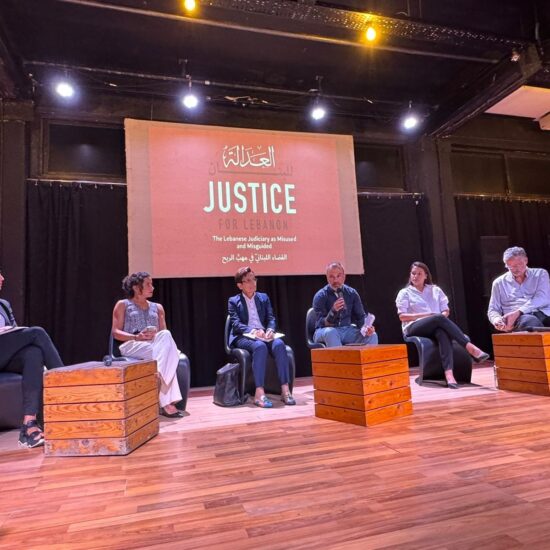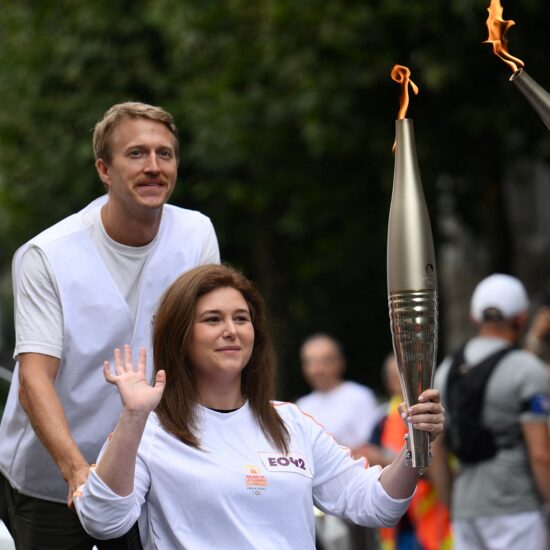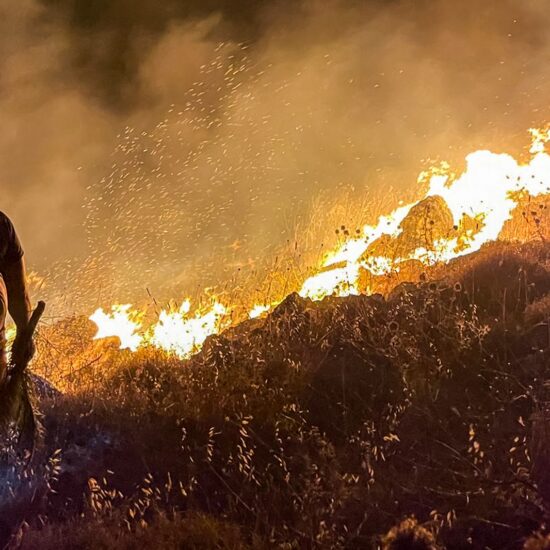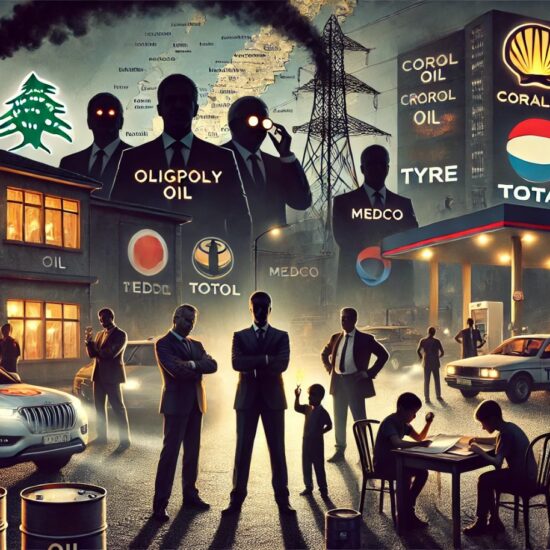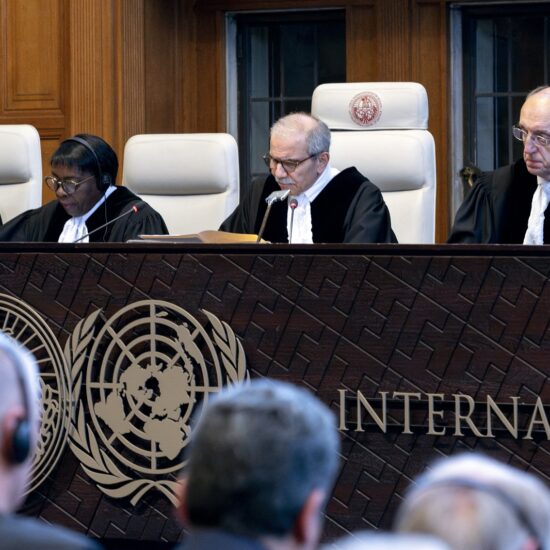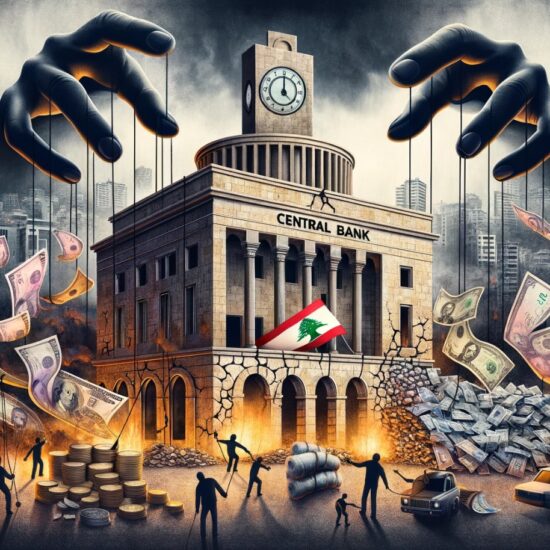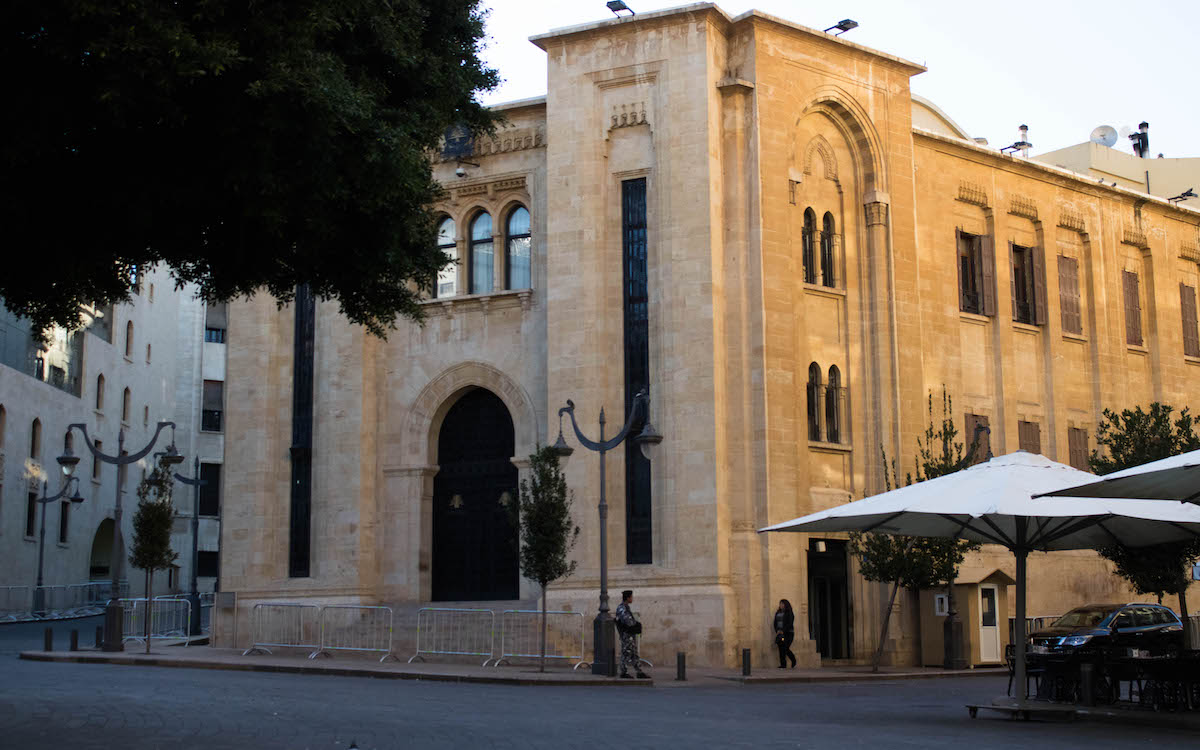
It has been one week since Michel Aoun departed the Presidential Palace in Baabda, and Lebanon is still no closer to electing a president.
During the parliamentary session later in the week, well after Aoun was no longer in power, the parliamentarians failed to come together in a serious debate and finally vote someone into office to fill the vacuum that has formed since Aoun’s departure. Rather, they discussed a letter that Aoun wrote. Kataeb, “change” MPs and independent MPs walked out of the session before the letter could be read.
While a new special session to elect a president has been scheduled for Thursday, there is still little consensus around any particular candidate, making it seem all the more likely that this coming session will meet the same fate as the previous four.
There has been a lot of talk from the politicians about having “dialogue” so that they can overcome their differences and elect a new president before the vacuum has too much of a negative impact on the country. But this talk has led to little action, and Lebanon is already starting to see the consequences of the vacancy in the presidency.
Last week, two men held up a bank in Hazmieh to try and withdraw some of their trapped savings. These issues with the banks could be solved by Parliament passing reforms, but they cannot do this because the Constitution prevents Parliament from conducting any other business once they have begun voting on the president.
Most of the opposition seems set on voting for MP Michel Moawad but, without support from Hezbollah’s bloc and its allies, he has practically no chance of actually being elected.
Hezbollah, for its part, appears to have decided on who they want to support for the presidency: Suleiman Frangieh.
According to the Party of God, the Free Patriotic Movement is also with them on this, despite Gebran Bassil, leader of the FPM, having his own presidential ambitions.
This means that Hezbollah will have to do some delicate balancing as to not anger Bassil too much, or else they could lose their political cover.
However, even if Frangieh has the support of the entire March 8 bloc in Parliament, he would still be several votes short of a majority, meaning that members of the opposition would need to support Frangieh as well.
The lack of any majority in Parliament, and the unwillingness of the politicians to hold any real dialogue to come to a consensus only assures that the president’s seat in Baabda will remain empty for the foreseeable future.
In Lebanon
More Syrian refugees sent home: A week after some 500 refugees were returned from Lebanon to Syria, another 330 also departed Lebanon in what the Lebanese government describes as a “voluntary return.”
The Lebanese government has long discussed having Syrian refugees residing in Lebanon return to their home country, whether they wanted to or not.
While the Syrian government has assured that anyone who returns will not come to any harm, it was a promise that they almost immediately went back on when several refugees were disappeared after they returned to Syria.
View this post on Instagram
Human rights observers have repeatedly argued that Syria is not safe for refugees to return to as many are likely to face persecution by the Syrian government’s brutal security and intelligence forces.
New exchange rate delayed: The Lebanese government was set to begin raising the official exchange rate at the start of November, but this had to be postponed after the 2022 budget was not implemented.
While Parliament passed the budget, it remains unofficial. Due to reported objections that Aoun had with several parts of the agreed-upon budget, he never signed it..
The 2022 budget, despite lacking a presidential signature, will become official later this month.
A unified exchange rate and a budget are part of the conditions set by the International Monetary Fund in order for Lebanon to receive billions of dollars in aid.
Hezbollah and Iran sanctioned: The US implemented sanctions against Hezbollah and Iran for their efforts to smuggle already sanctioned Iranian oil.
This network allegedly blends and exports Iranian oil with legally exportable oil so that Iran can continue making a profit despite harsh US sanctions on the country.
Iran has consistently found ways to export its oil despite being sanctioned by the US since former US President Donald Trump pulled out of the Iran nuclear agreement.
Tragic death at Tripoli school: One student was killed and another injured after the ceiling in their classroom collapsed.
Maggie Mahmoud, 16, died in her classroom at the American School in the Jabal Mohsen neighborhood of Tripoli.
Maggie Mahmoud, 16, was killed and another student injured after part of the ceiling collapsed at the American Public School in the #Tripoli neighborhood of Jabal Mohsen. #طرابلس pic.twitter.com/tR8ojcyjJc
— Nicholas Frakes | نيكولاس فريكس (@nicfrakesjourno) November 2, 2022
Tripoli is Lebanon’s second-largest city but is also the country’s poorest and most neglected.
Taif 33 years later: Lebanon celebrated 33 years since the Taif Agreement was signed, ending the bloody 15-year civil war, with the Saudi Embassy in Beirut holding a “national conference” at the UNESCO Palace on Sunday.
The conference discussed having all parties adhere to the document signed three decades ago and to finally implement aspects of the agreement that have gone by the wayside.
Many politicians expressed support for the idea of holding talks and implementing the entirety of the Taif Agreement, but, in the over 30 years since it was first signed, they have done little to nothing to actually follow through on this idea.
Making good television: A fistfight broke out between supporters of the FPM and audience members, leading the Lebanese broadcaster MTV to announce that they would no longer host FPM supporters at the Sar al-Waqat (It’s Time) studio.
#العونية_حالة_مرضية #صار_الوقت#لبنان #بيروت #مرسال_غانم
#ميشال_عون #بي_الكل pic.twitter.com/YW0fQzaW8k— محمد غازي الزعبي (@zohbymhamad) November 3, 2022
Those taking part in the fight were forced out of the studio where the scuffle continued.
The army eventually intervened.
Cholera update: Even as Lebanon’s medical authorities have begun to get a better grip on the cholera outbreak in the country and thousands have vaccines have arrived, Lebanon is continuing to see a steady rise in cases.
There are currently 436 confirmed cholera cases with another 2,273 suspected cases. 18 people have died so far as a result of contracting the bacteria.
— Ministry of Public Health – Lebanon (@mophleb) November 6, 2022
In the region
A tale of two protests: Iran marked the anniversary of the Islamic Revolution’s taking of the US Embassy in Tehran in 1979 with thousands coming out in government-organized demonstrations. All the while, nationwide anti-regime protests continue.
The demonstration organized by the Iranian government saw streets filled with people chanting their support for the government. Many were brought to the event in buses that the Iranian government organized.
On the other side, anti-government protests were much more subdued, not necessarily because more people support the Islamic Government of Iran, but because the government has continued to crack down on the demonstrations with extreme uses of force.
The US has continued to express support for the protesters but has done little to actually support them.
Syrian camp bombed: Around 10 people were killed and dozens more injured in a camp in rebel-held northwest Syria on Sunday after Syrian government forces shelled the area, violating a 2020 ceasefire agreement.
This is insane. Moment when Assad’s forces bombed refugee camps near idlib this morning with BM-27 Uragan rockets. Each on those rockets contain 100s of cluster bomblets. ~80 casualties among civilians. Blattant war crime. Syria pic.twitter.com/yrJNqy21C1
— QalaatM (@QalaatM) November 6, 2022
Among those killed were, reportedly, three children and one woman.
In response to the shelling, rebel forces fired their own missiles at government-held positions in Saraqib and al-Ghab.
The ceasefire, brokered by Russia and Turkey in March 2020, has been repeatedly breached since it was established.
More talks: Iraq’s new prime minister, Mohammed al-Sudani, says that he hopes that Iraq will be able to continue mediating talks between regional rivals Saudi Arabia and Iran.
Iraq has, in the last few years, worked to help Saudi Arabia and Iran renew their relationship after Iran broke off diplomatic relations with the Kingdom in 2016 after the Saudi Government executed a prominent Shiite cleric in the country.
Saudi Arabia has also sought to hold talks with Iran to help bring the war in Yemen to an end.
The two countries are longtime regional rivals, often backing groups on opposite sides of conflicts.
COP27 in Egypt: This year’s climate summit is being held in Egypt, but as leaders from around the world flock to the African country to discuss climate issues, many are calling attention to the Egyptian government’s disregard for human rights.
In addition to its rampant human rights abuses, the country’s most prominent political prisoner, Alaa Abdel Fattah, has said that he will stop drinking water if he was not released before the start of the summit, raising the possibility that he could die in custody.
Abdel Fattah had already been on hunger strike for over 200 days before making this announcement.
The Egyptian government under Abdel Fattah al-Sisi has returned to an authoritarian regime, cracking down on any dissent, something that it has made sure would not happen while world leaders are visiting the country.
Bibi is back: Former Israeli Prime Minister Benjamin Netanyahu is set to return to power after he was ousted a year and a half ago when Yair Lapid was able to form a government.
Following Israel’s fifth round of elections in four years, Netanyahu and his far-right political coalition were able to secure 64 of the 120 seats in the Knesset, Israel’s parliament, giving him a clear path to return to power.
Some have expressed concern about the new government, namely that it will consist of members from Israel’s most extreme and far-right parties.
It will likely be several weeks before a new government is announced.
What we’re reading
Shady deals: The maritime border deal between Lebanon and Israel has officially been signed, paving the way for the French energy giant Total to begin exploring the Qana Prospect for any viable natural gas reserves. NOW’s Philippe Pernot looked at Total and its other dealings and the potential implications that it may have on Lebanon and France.
Lebanon+
What is the lira at?: Anyone living in Lebanon knows that there are as many exchange rates as there are political parties.
There is the official rate of 1,507 to $1, the bank rate of 8,000, the rate put in place by the Central Banks Sayrafa platform which currently sits at 30,100, the OMT rate of 34,800 and, finally, the actual value of the lira which is hovering around 38,000 to 39,000.
However, Google has decided that there is another exchange rate. On Sunday evening, when asking Google what the USD to LBP exchange rate was, searchers would get a result of 1,483. So, according to Google, not only has the lira appreciated in value, it is stronger than it has been since the civil war ended in 1990.
So according to Google, the LBP appreciated to the USD and is now valued less than the official pegged rate. In reality, the lira is closer to 38,000 to $1. #Lebanon #لبنان #دولار #ليرة pic.twitter.com/zgxd1XpM7i
— Nicholas Frakes | نيكولاس فريكس (@nicfrakesjourno) November 6, 2022
The exchange rate on Google has since returned to the officially pegged rate.
Podcasts: Comedians Wissam Kamal and Chaker Bou Abdalla return to Sarde after dinner in the latest episode to speak with Médéa and Mouin on a variety of topics ranging from how to cure a hangover, to life as a comedian, to bringing Arabic comedy to a global audience.
Ronnie Chatah sat down with “change” MP Ibrahim Mneimneh on the Beirut Banyan where the two discuss what has been happening lately with the Change Bloc and its MPs, the presidential elections, and changing Lebanon’s situation through legislation.
Until next week, follow NOW Lebanon on Twitter, Instagram, Facebook, and LinkedIn, and subscribe to our weekly newsletter. Stay dry and stay safe.



